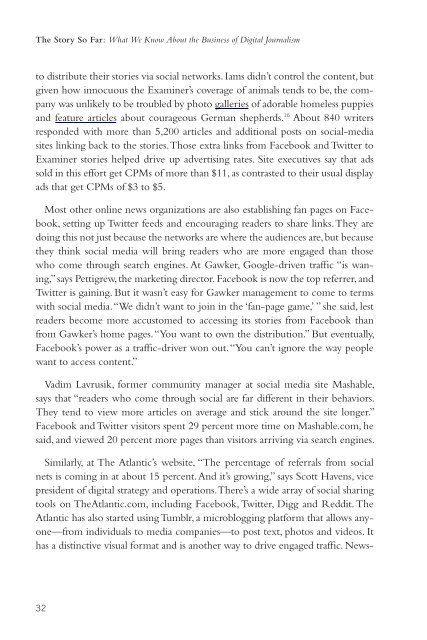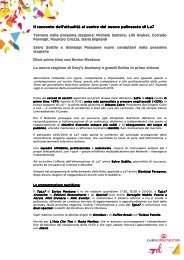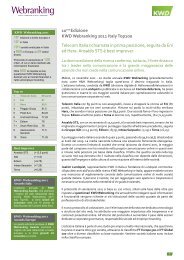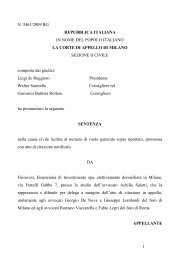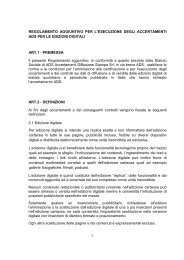What We Know About the Business of Digital Journalism
What We Know About the Business of Digital Journalism
What We Know About the Business of Digital Journalism
Create successful ePaper yourself
Turn your PDF publications into a flip-book with our unique Google optimized e-Paper software.
The Story So Far: <strong>What</strong> <strong>We</strong> <strong>Know</strong> <strong>About</strong> <strong>the</strong> <strong>Business</strong> <strong>of</strong> <strong>Digital</strong> <strong>Journalism</strong>to distribute <strong>the</strong>ir stories via social networks. Iams didn’t control <strong>the</strong> content, butgiven how innocuous <strong>the</strong> Examiner’s coverage <strong>of</strong> animals tends to be, <strong>the</strong> companywas unlikely to be troubled by photo galleries <strong>of</strong> adorable homeless puppiesand feature articles about courageous German shepherds. 16 <strong>About</strong> 840 writersresponded with more than 5,200 articles and additional posts on social-mediasites linking back to <strong>the</strong> stories. Those extra links from Facebook and Twitter toExaminer stories helped drive up advertising rates. Site executives say that adssold in this effort get CPMs <strong>of</strong> more than $11, as contrasted to <strong>the</strong>ir usual displayads that get CPMs <strong>of</strong> $3 to $5.Most o<strong>the</strong>r online news organizations are also establishing fan pages on Facebook,setting up Twitter feeds and encouraging readers to share links. They aredoing this not just because <strong>the</strong> networks are where <strong>the</strong> audiences are, but because<strong>the</strong>y think social media will bring readers who are more engaged than thosewho come through search engines. At Gawker, Google-driven traffic “is waning,”says Pettigrew, <strong>the</strong> marketing director. Facebook is now <strong>the</strong> top referrer, andTwitter is gaining. But it wasn’t easy for Gawker management to come to termswith social media. “<strong>We</strong> didn’t want to join in <strong>the</strong> ‘fan-page game,’ ” she said, lestreaders become more accustomed to accessing its stories from Facebook thanfrom Gawker’s home pages. “You want to own <strong>the</strong> distribution.” But eventually,Facebook’s power as a traffic-driver won out. “You can’t ignore <strong>the</strong> way peoplewant to access content.”Vadim Lavrusik, former community manager at social media site Mashable,says that “readers who come through social are far different in <strong>the</strong>ir behaviors.They tend to view more articles on average and stick around <strong>the</strong> site longer.”Facebook and Twitter visitors spent 29 percent more time on Mashable.com, hesaid, and viewed 20 percent more pages than visitors arriving via search engines.Similarly, at The Atlantic’s website, “The percentage <strong>of</strong> referrals from socialnets is coming in at about 15 percent. And it’s growing,” says Scott Havens, vicepresident <strong>of</strong> digital strategy and operations. There’s a wide array <strong>of</strong> social sharingtools on TheAtlantic.com, including Facebook, Twitter, Digg and Reddit. TheAtlantic has also started using Tumblr, a microblogging platform that allows anyone—fromindividuals to media companies—to post text, photos and videos. Ithas a distinctive visual format and is ano<strong>the</strong>r way to drive engaged traffic. News-32


